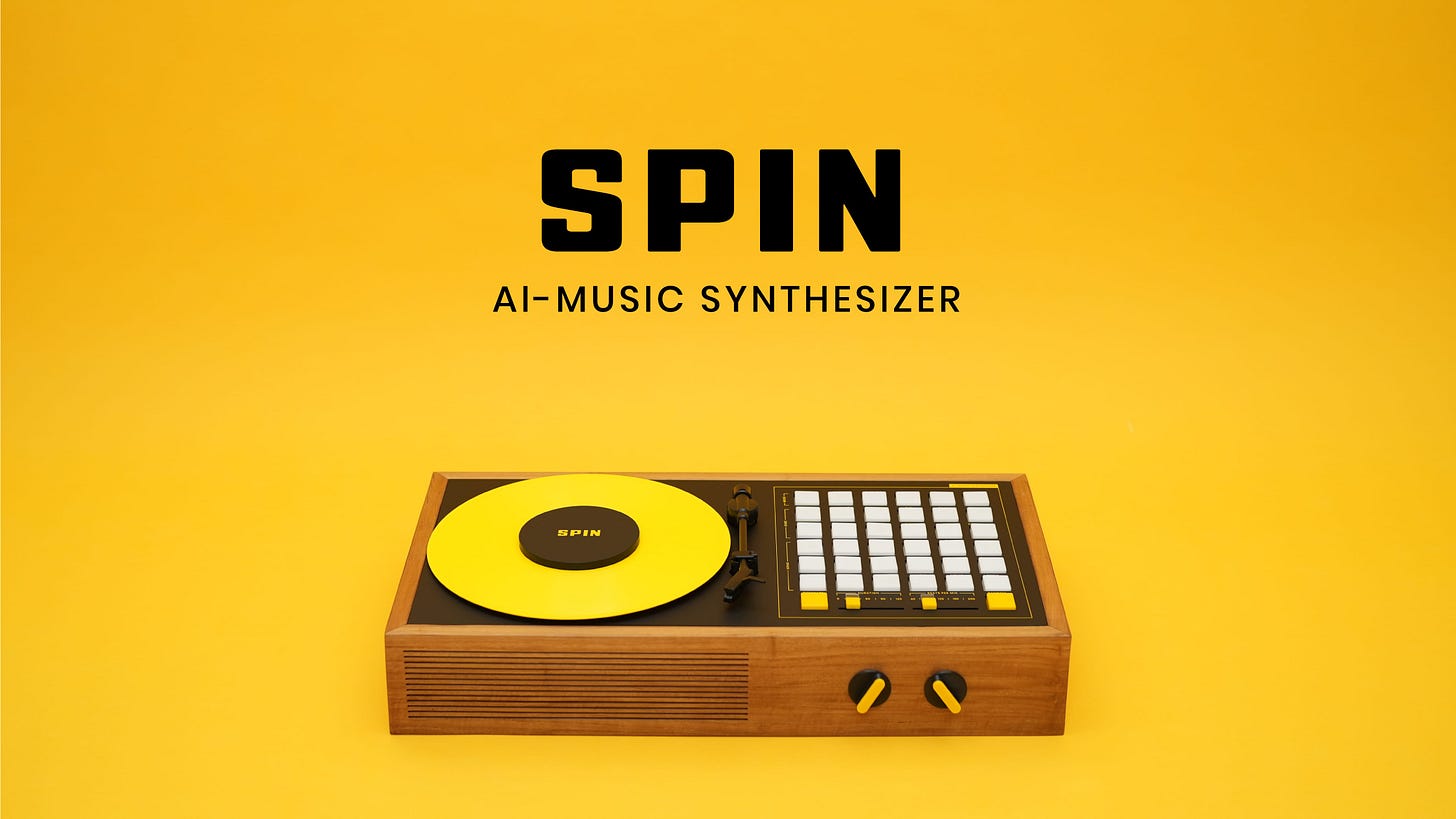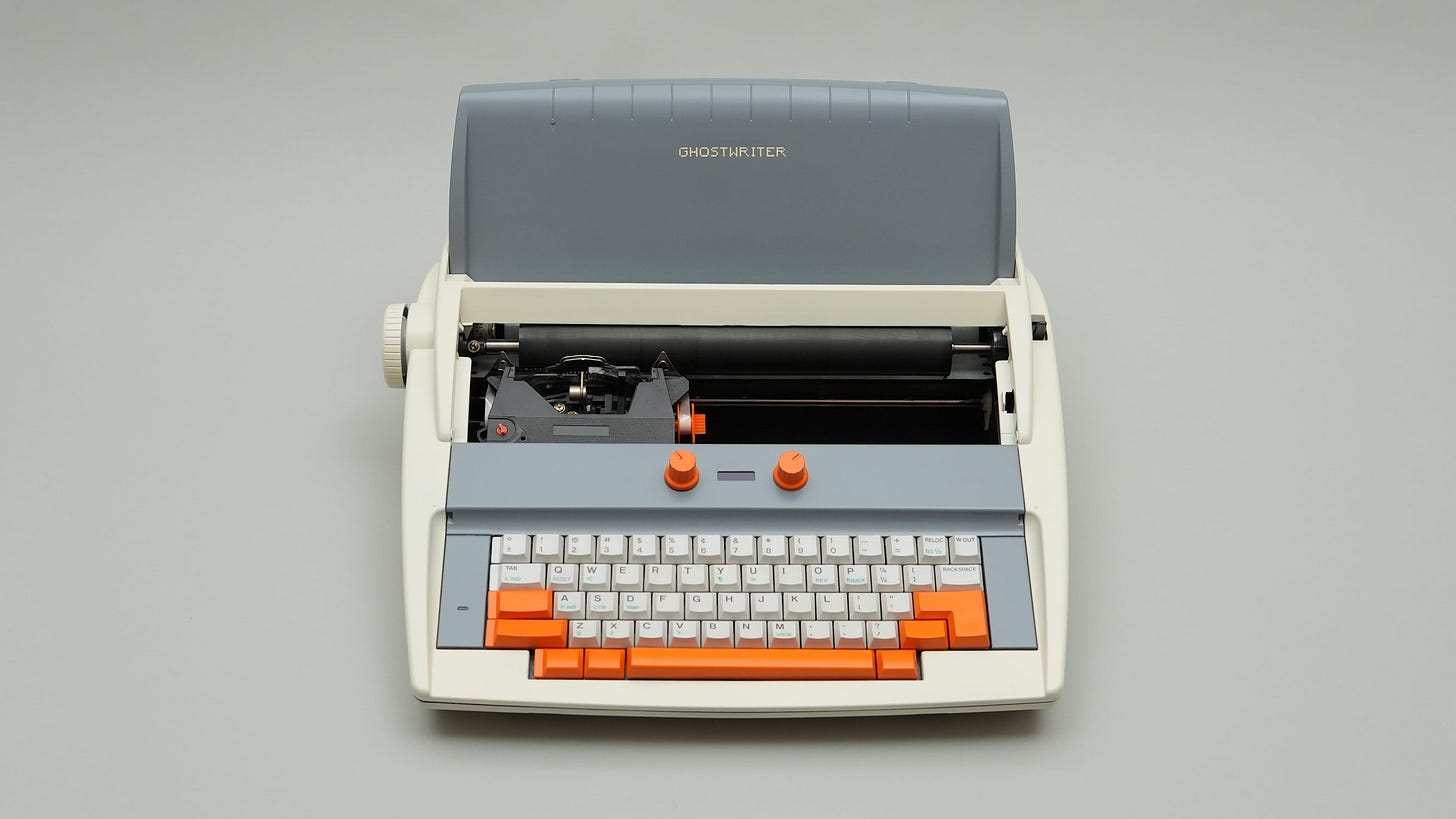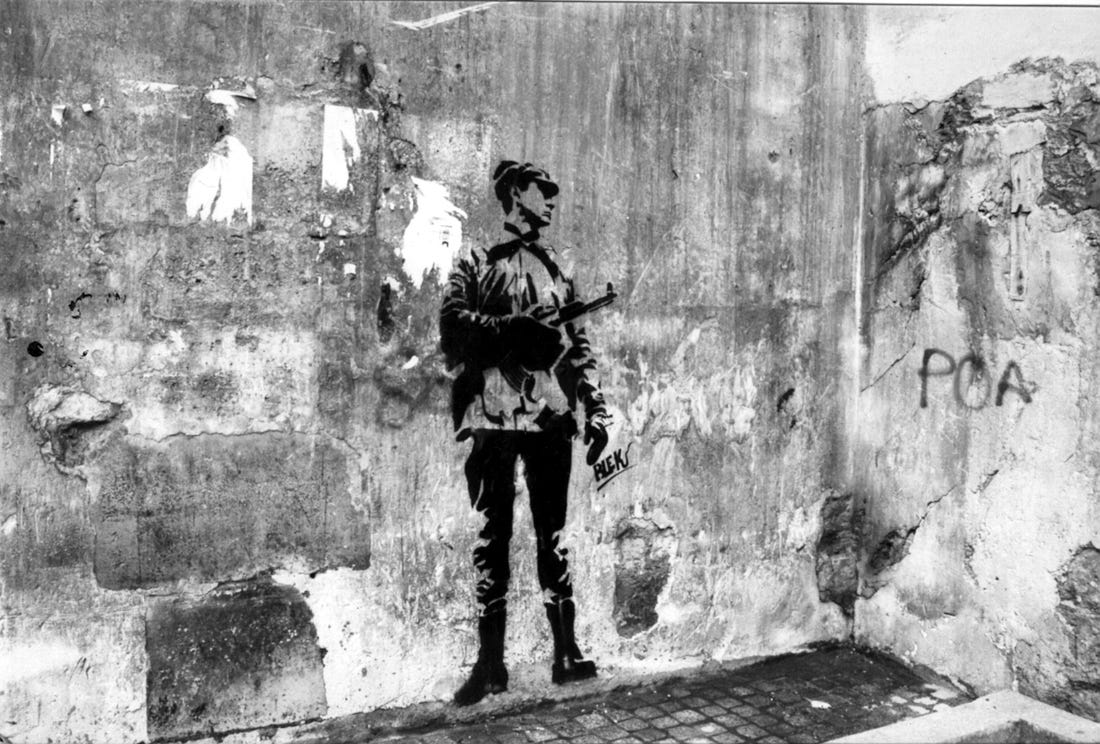Creativity vs AI: There's nothing as powerful as an idea who's time has come
Can AI ever be creative? Or is it a truly human endeavour?
The announcement of OpenAI’s Sora (video generation) capabilities has once again brought the conversation of AI creativity back to the fore.

Creativity and AI is something of a divisive topic - on the one hand, it would seem like creativity, and any domain where absolute truth and reliability are not important, would be an area that generative AI could really excel, whilst on the other hand, lots of people argue that creativity is what sets humankind aside from animals and machines. To truly create, like the Da Vinci’s of this world, is what it really is to be human.
So we might as well jump into the two sides - as usual, I’m not pitching either argument really, just that thinking through this kind of stuff is fun**
(**warning: if you are a first time reader, never believe me when I say something might be fun)
AI creativity is gross
Let’s start with the against argument.
I think, subjectively, this is a pretty natural starting point. Outside of folks working in AI, I’d guess a reasonable number of us would start from the position of AI can’t truly create art. This might be tied to ideas about what it means to be human, creativity, the human spirit, or just innate stubbornness.
There is something about art, music, words that I certainly can’t describe - they somehow have the ability to do more than convey information. They evoke feelings, alter moods - they make us feel alive, somehow. You might read a lot of words today (this newsletter included) and think ok, I have taken on that information, but sometimes you will read words and just be taken aback by their power and beauty.
Can computers and AI really do this? Ultimately you’d have to say yes, because it’s no different to the infinite monkeys with typewriters writing Shakespeare - it’d be able to generate words in an order that makes beautiful sentences.
But is it the same if there isn’t human sentiment behind it? If a living human has felt, and thought about the exact words to convey some meaning. Much like art, I guess this is entirely subjective. Do I think most people would enjoy art or music as much if they knew it was AI Generated? I’m going to hazard a guess not (even if it does feel like some kind of anti-robot bias from sci-fi movies like Blade Runner or I Robot).
Energy and effort
What I think it might come down to is the energy and effort put into the art. I think this is already the case, pre generative AI. Mass produced imagery, decor or products are not held in as high regard as artisinal, small batch products. If a machine can produce millions of units, it has less interest. Most of us would probably prefer unique, originals if we were hanging artwork in our homes, but probs care far less if our mass-produced wallpaper from a high-street-chain was created by machines, and to be honest, if you had AI generated wallpaper it’d probably make it more interesting (until everyone had it, of course).
Something about art and creativity goes beyond the product, maybe, it’s about the story.
I came across a product last week - it was a generative AI turntable tool (see picture below) - it had buttons that would control inputs (mapped to concepts like mood, genre, instrument) to generative AI to create music, and the turntable could then control the song it played. My initial gut reaction was “that looks fun, but its a horrible invention for music in general” - the idea that all of a sudden there could be a flood of DJs and musicians who just turn up and press a button to get AI to generate music for a performance just doesn’t seem right, and doesn’t feel like it’s going to be a good thing for music in general.
BUT THEN, I read a bit more. Its not a mass produced product. Its art in of itself. It is one man’s invention, and you can read exactly how he built it and it completely changed my opinion. I love it, as a project and as a product. It’s fun, it’s clever, it look’s great, it’s creative and just such a cool project. I really want this.
I kept reading and discovered a lot of his work is around the intersection of AI and the real, physical world, and discovered his generative-AI typewriter, and love that almost as much (yes, you type your question on a line on the typewriter, and ChatGPT types a response out for you).
Maybe it’s my own anti-robot bias, but I think I have just proven my point.
An output space without rules or absolutes is where AI can excel
Ok, so it feels kinda gross, and possibly mass produced (even though it actually isn’t and each generation can be kind of unique), but is this where AI tools can excel?
Similar to the ideas I have discussed in conversation about knowledge systems where accuracy is required and needs to be relied on, AI can really excel in creative systems, where the exact opposite is true.
In his book, Where good ideas come from, while talking about innovation and invention, Steve Johnson describes the concept of the adjacent possible, essentially the idea that innovation and invention is almost always a next logical progression from where we are now, just some variation or small leap from what already exists.
The adjacent possible is a kind of shadow future, hovering on the edges of the present state of things, a map of all the ways in which the present can reinvent itself
Steve Johnson, Where good ideas come from
For me, this definition really sums up a strength of generative AI - it learns through huge amounts of data a really accurate and deep understanding of "the present state” and from there it can generate new works of art. Sure, isn’t this just copying other people’s work? is it really original art? I guess we could flip that question around and ask, isn’t that what we are all doing, all the time?
Take the artist Banksy, a graffiti artist originally from Bristol (apparently), arguably the graffiti capital of the UK (at least from my vaguely south-west centric bias anyway):
Was he the first graffiti artist? Of course not.
Was he the first to use stencils? Nope (as you might imagine, if you are performing illegal graffiti, any tool that aided your ability to paint and get away quick was advantageous).
Was his style particularly unique or brand new? Nope - the Banksy looking image above is from an early pioneer of graffiti stencil art called Blek le rat, and was painted way back in 1991 (and there are lots of other similar styled examples of his from throughout the 80s too).
The point here is through the adjacent possible, we are all creating, inventing and thinking on the shoulders of giants, as the saying goes, so can we really take too much issue with generative AI doing the same?
But art isn’t just the adjacent possible! I hear you cry. Art can be completely left-field, completely out-there and original - can computers do that?!
Yes, is the answer. In many ways, even better than humans can. All that takes is randomness - and that’s a surprisingly easy dial to turn up for computers and AI. Humans are far more constrained by their experiences and what they have learnt and seen than computers are. It is often quite hard for human’s to shake of conventional ideas or concepts, even whilst doing “out-there” kind of things, there will still often be fundamental rules that they just can’t escape.
With the announcement of Sora, OpenAI’s incredible video generation tools, it is fairly clear that AI can already create incredible videos. Much like the text and image generation, these technologies are going to become even more indistinguishable from human output, so what does that mean? Is it art until we know it was AI generated?
I was speaking with a friend last week, they had been given a poem by someone, which they had reflected on and thought about, only to later find out that the author had actually written it using ChatGPT. As you might imagine, it completely changed their view of the poem and suddenly found that they didn’t really know how or what to think about it. The poem was still unique, it was created using the authors specific instruction, so is generative AI any different to any other tool or instrument a creative might use?
This reminds me of another great analogy - back in 2001 the band Gorillaz released a song called Clint Eastwood (it did pretty well in the charts, and if you are of that era, you’ll likely know it, it was all over the radio). In a recent interview the band founder and lead singer revealed that the entire backing track of the tune was a pre-set loop from an old digital keyboard. If you don’t listen to those two clips, just believe me, the entire song was just him basically pressing the demo button on an old musical device. It was a huge song, that millions will have enjoyed, but it was just a keyboard pre-set loop. Can we really argue that is any different to finding out that the backing of your favourite ever song was generated by an AI model?
I guess this line of argument is less focussed on whether AI is capable of creating art but rather what do we really think it means for humans to create art?
Won’t somebody think of the artists
I’m not gonna lie (ngl, as the kids would say), I can’t see how this doesn’t impact creative industries.
Even if you are cynical and doubt the creative capabilities of generative AI right now, it feels it might be naive, given the speed of advances over the last few years, to not assume that within at least the next 5 years, the quality of output across these mediums is going to be getting way better.
I think if I were in a fully creative domain I’d definitely be thinking about what I think the future looks like, and how I can utilise these tools and systems to work more creatively (and yes, technology will be impacted, but in a different way and not to the exact same extent, but thats a different topic anyway).
If for no reason other than not all people appreciate and value quality and creativity the same way. There are companies who see value in paying experts to design logos, and some that do it themselves. There are companies who are willing to pay copywriters to expertly craft their marketing copy and there are those that just stick words together themselves. Generative AI is simply adding another option in all these decisions and that option will inevitably take some share of the market, and as it gets better and more accessible over time, that market share will only grow.
You might be a creative very much in the camp of the first argument, that the human element is what is important, and I’m also sure that will be a narrative that continues to sell and that people put value in - there will likely always be a market that finds the human element of the story compelling, but it might be a shrinking market. Of course I might be wrong, it might be more like the boom in off-shore customer support call centres years ago, that after much push back from customers the big brands started using “all our call centres are in the UK!” as a marketing angle - maybe customers will demand “made by humans”.
Conclusion
As always, if you think either side of this argument or any of my observations are stupid, wrong, misinformed, incredible then you are probably right.
There is no doubting that generative AI has the power to create, and that power is only going to increase - I guess it’s up to us, both collectively and individually, what value we put on that.





